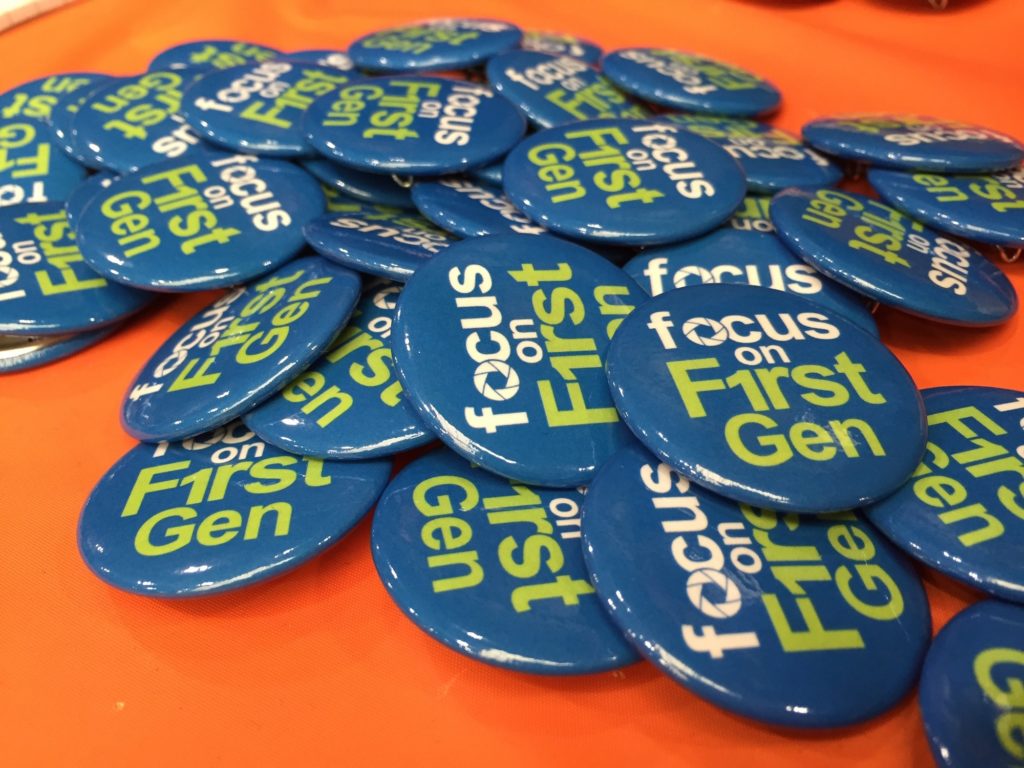New scholarship partnership
Wheaton partners to serve first-gen students
Wheaton College is expanding its ability to bring first-generation college students to campus through a new partnership with the Maine Seacoast Mission and the Shelby Cullom Davis Charitable Fund.
The college joins the effort as one of three inaugural partners in the Davis Maine Scholarship program, a full, four-year scholarship for rural, first-generation college students from Maine’s Washington and eastern Hancock counties. Clark University and the University of New England also will participate in the program.
“We are very excited to be establishing this partnership. Wheaton is firmly committed to creating a diverse and inclusive learning experience for students, and we value the perspective and experiences that first-generation students bring to our campus,” said Wheaton College President Dennis M. Hanno.
“Wheaton’s emphasis on personalized liberal arts education combined with real-world experience prepares young women and men to create positive change in the communities in which they live and work,” President Hanno said.
The college was selected as a partner institution based on its institutional commitment to increasing socioeconomic diversity through demonstrated success with serving first-generation, college-bound, low-income, rural students through existing programs and resources. Wheaton and the other partner colleges also have demonstrated success with freshman retention and four-year college completion rates, especially among first-generation college-bound students.
First-generation students currently comprise 20 percent of Wheaton’s student enrollment. In recent years, the college has introduced several programs designed to ensure the success of first-generation students, including a pre-orientation track and the hiring of a VISTA volunteer to coordinate programs and develop long-term support for the success of first-gen students.
In announcing the partnership, Andrew Davis of the Shelby Cullom Davis Charitable Fund said, “This is a remarkable opportunity for deserving Downeast high school scholars. We are creating this scholarship for students who excel in their studies, persist through hardship and will be among the first members of their families to go to college. I very much look forward to supporting our college and high school partners on behalf of these exceptional young people. It is extremely exciting to play a role in showing the world what Downeast students can achieve.”
Christina Griffith, Davis Maine Scholarship director at the Maine Seacoast Mission added, “Coupled with the family and community strengths from which our Downeast students come, the Davis Maine Scholarship will provide Davis Scholars what they need to prepare for, persist through and successfully complete their undergraduate studies.”
The first Davis Maine Scholars will be selected from two partner high schools: Narraguagus in Harrington and Sumner Memorial in Sullivan. The first Davis Maine Scholarship cohort will be selected as high school juniors in fall 2020. They will receive strategic college transition planning and support with college research, admissions and financial aid information, as well as tools for personal and academic college success before coming to campus. The Davis Maine Scholarship also includes family engagement workshops, given the integral role families play in supporting students through their college studies.
The Davis Maine Scholarship builds on the success of the Seacoast Mission’s educational programs. For more than a century, the Mission has worked to address multigenerational poverty in rural Washington and eastern Hancock counties through programs including the Mission Scholarship Program (founded in 1918), and the Ed Greaves Education (EdGE) K-12 youth development program (founded in 2002).
John Zavodny, Maine Seacoast Mission president said, “We are very pleased to be partnering with the Shelby Cullom Davis Charitable Fund to continue to provide Downeast communities with greater access to higher education. This strong partnership will result in more college graduates, greater economic opportunity and new roads toward promising futures.”

